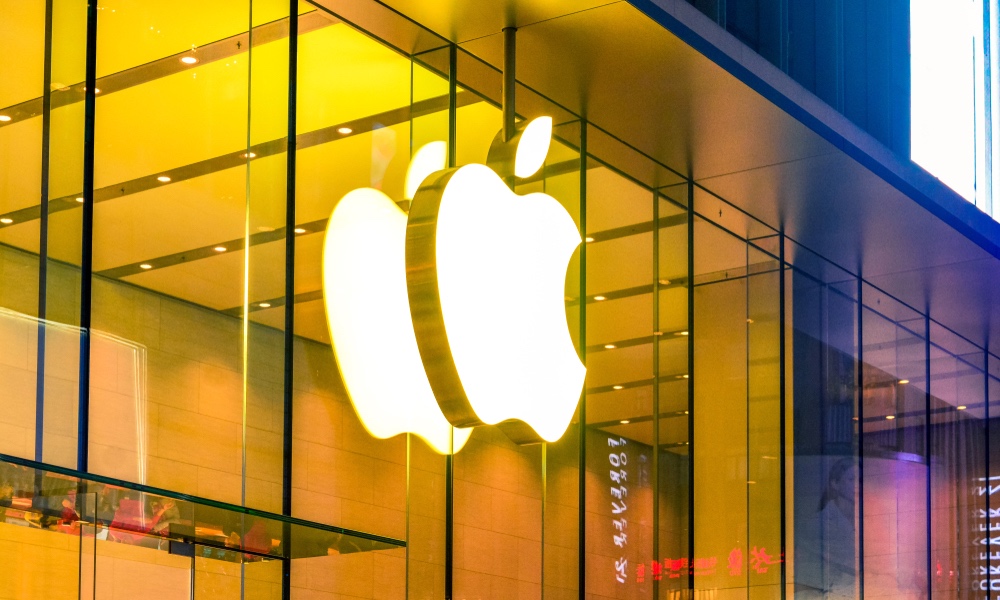Former Apple Executive Accuses Apple of Spying on Him
 Credit: thanat sasipatanapa / Shutterstock
Credit: thanat sasipatanapa / Shutterstock
Toggle Dark Mode
A former Apple executive who was a key member of the team behind the A-series chips that power the iPhone and iPad found himself embroiled in a legal dispute with Apple last summer after the company sued him for breach of contract. Now he’s firing back with his own complaint that Apple significantly invaded his privacy in order to bring the lawsuit against him.
Gerard Williams III left Apple in February, moving on to start a new company, Nuvia, with other former Apple developers. Williams was a senior director in Apple’s platform architecture, and was one of the driving forces behind the development of all of Apple’s 64-bit A-series chips, beginning with the A7 found in the iPhone 5s all the way through to the current A13 chip that powers the current iPhone 11 lineup.
Williams’ Departure
As we noted in April, the loss of Williams was likely a huge setback for Apple, especially as it was preparing to expand its chip engineering efforts into 5G modem chips and ARM-based CPUs for its Mac lineup, but after it became apparent that Williams left Apple to create his own chip company, it appears that the iPhone maker decided it wasn’t about to take Williams move lying down, especially when it discovered that he may have been planning the move long before he announced his departure.
According to Bloomberg, Apple filed a lawsuit against Williams last August for breach of contract, pointing out that his intellectual property agreement with Apple barred him from engaging in any business activities that are “competitive with or directly related to Apple’s business or products.”
Williams, of course, immediately disputed Apple’s claims, both on the basis of anti-competition clauses being generally unenforceable under California law, but also by coming out and accusing Apple of a “stunning and disquieting invasion of privacy” by monitoring his confidential text messages.
In Apple’s theory, if one Apple employee speaks to (or texts) another employee conveying criticisms of Apple’s strategies or decisions, that discussion is itself a purportedly unlawful ‘solicitation’ to leave Apple.
Statement in Gerald Williams’ court filing
The court filings in which Apple brought the suit against Williams made it clear that the company had not only reviewed his text messages, but that it also had access to his phone records. The filing itself shares a text exchange that Williams had with another Apple engineer as far back as October 2015, and also lists a number of calls that Williams has with his Nuvia co-founders during business hours while he was employed with Apple. In one such message, Williams commented that Apple would have “no choice but to purchase” his new company.
This case involves a worst-case scenario for an innovative company like Apple: A trusted senior director with years of experience, and years of access to Apple’s most valuable information, secretly starts a competing company leveraging the very technology the director was working on, and the same teams he was working with, while still employed by Apple.
Statement in Apple’s court filing
Apple has declined to comment on the matter, but if the text messages were being sent from a company-owned iPhone and an Apple-issued phone number or apple.com iMessage address, it’s likely that Apple will try to make the case that these were company communications and that Williams had no expectation of a right to privacy, especially when engaging in these conversations on company time.
But Isn’t iMessage Supposed to be Private?
Apple makes a lot of proclamations about how iMessage uses end-to-end encryption and is supposed to be so private that even Apple can’t access it, so it may give you pause when you realize that Apple clearly had access to Williams’ messages.
However, this actually isn’t something that normal users need to be concerned about. While the filings don’t include any technical details, the most likely scenario is that Williams was using an iPhone or other Apple device that had been issued to him by Apple, in which case it probably had a Mobile Device Management (MDM) certificate installed on it that granted Apple this kind of access.
This isn’t even unique to Apple either, but is rather a function of how MDM systems work, and is precisely the reason why Apple took such a strong stance against parental control apps that were misusing the technology along with companies abusing its Enterprise developer certificates. Both of these technologies allow for an unprecedented level of access to the data on iPhones and iPads that are set up with them, but they’re only intended to be used on devices that are owned by companies or schools and issued to employees or students.
While laws vary between different jurisdictions, in many places all communications that occur on company-owned hardware — whether that’s on the iPhone and computer the employee is using or simply the server that they pass through — are considered the property of the company, and not the employee.
In fact, the Sarbanes-Oxley Act actually requires many large companies to keep track of all email and text messaging conversations for regulatory auditing purposes. One such example is the financial services industry, where brokers and traders often conduct financial transactions, stock trades, and provide advice over text messages.
So needless to say, for all intents and purposes, Apple isn’t set up to read the iMessages that pass through its servers from just anybody, however if you’re using an iPhone that’s been given to you by your employer or your school, it’s certainly possible that they could be doing so, and with many larger companies, it’s pretty much guaranteed that they are.






